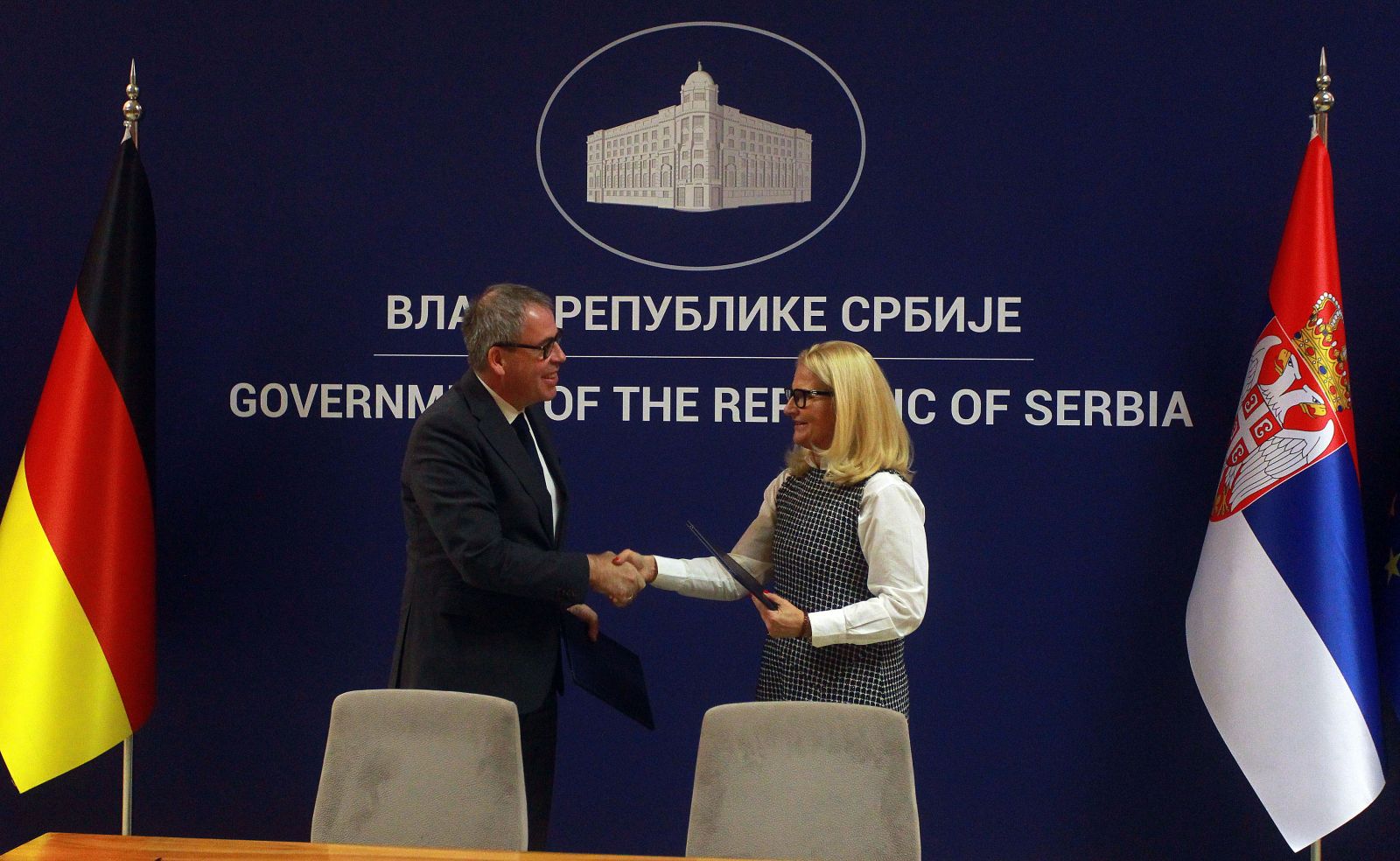
Serbia can rely on Germany’s support on its path towards green economic transition and further European integration, as concluded at today’s meeting between representatives of the governments of the Republic of Serbia and the Federal Republic of Germany.
In Belgrade today, the regular negotiations on development cooperation programmes between the Republic of Serbia and the Federal Republic of Germany were successfully concluded. Following the discussions, Minister of European Integration Tanja Miščević and Volker Oel, Director and Commissioner for South-eastern and Eastern Europe at the German Federal Ministry for Economic Cooperation and Development, signed the Minutes of the negotiations on development cooperation, with the annexes that form an integral part of the document.
On the occasion, Minister Miščević expressed gratitude to Germany for over two decades of development cooperation, adding that it had enabled numerous reforms benefiting Serbia’s citizens, society, and economy.
“When we look at the scale of this cooperation and the significance of the results achieved, particularly those of strategic importance for the development of our country and its integration into the European Union, it is clear that Germany is one of our most important bilateral partners. Today’s meeting resulted in a concrete agreement to direct support in the coming period toward green economic transition, which, perhaps most importantly for local communities, will contribute to the creation of new jobs, especially for women and young people,” said Minister Miščević.
“Serbia is part of the European family. Germany is committed to further supporting Serbia’s EU membership. I firmly believe that Serbia has all the prerequisites to be a leader in the region in green economic transition,” emphasised Volker Oel. The German government has committed to providing the Serbian government with a new amount totalling EUR 208.4 million for the 2025–2026 period. “This includes EUR 188 million for financial cooperation projects and EUR 20.4 million for technical cooperation projects,” said Volker Oel.
Representatives of the two governments also agreed on a series of new programmes focusing on three main areas: “Climate and Energy, Just Transition”, “Peaceful and Inclusive Societies”, and “Sustainable Economic Development, Training, and Employment” The specific aim of these programmes is to improve public services for the population, such as energy, climate change adaptation in urban areas, the promotion of green innovations by local businesses, and the attraction of new investors, which will lead to a greater number of well-paid jobs and economic opportunities, particularly for young people and women. The two countries also reaffirmed their commitment to working together to enhance good governance. Germany will remain dedicated to supporting Serbia’s reform efforts aimed at increasing transparency and citizen participation by providing expert assistance in policy-making.
The overall goal of German-Serbian cooperation remains unchanged: to improve socio-economic conditions, and thereby, the lives of citizens in the Republic of Serbia.
Since 2000, the Federal Republic of Germany has directly provided more than EUR 2.5 billion in bilateral technical and financial support to the Republic of Serbia. Through joint programmes with the Serbian government, these investments have strengthened German-Serbian relations, improved the lives of Serbian citizens, and accelerated Serbia’s progress toward European integration.
Photo: FoNet










